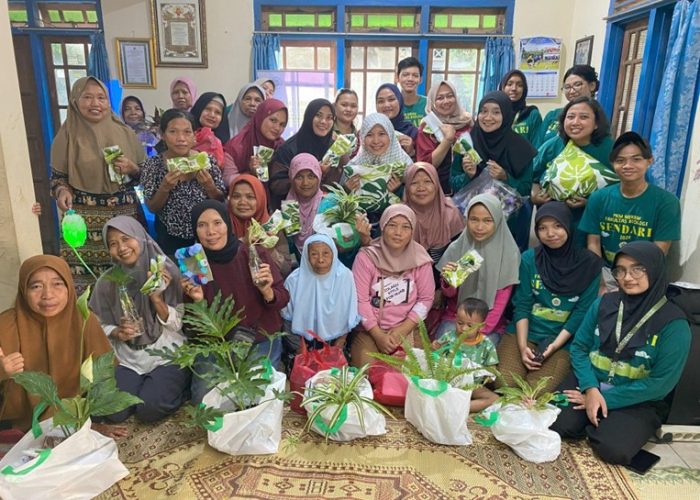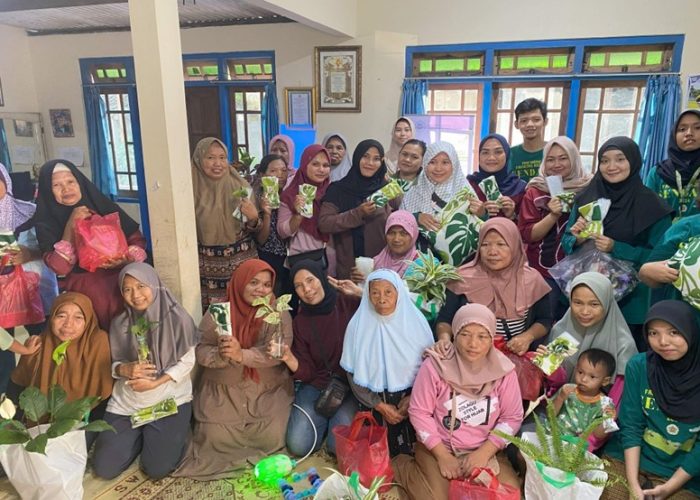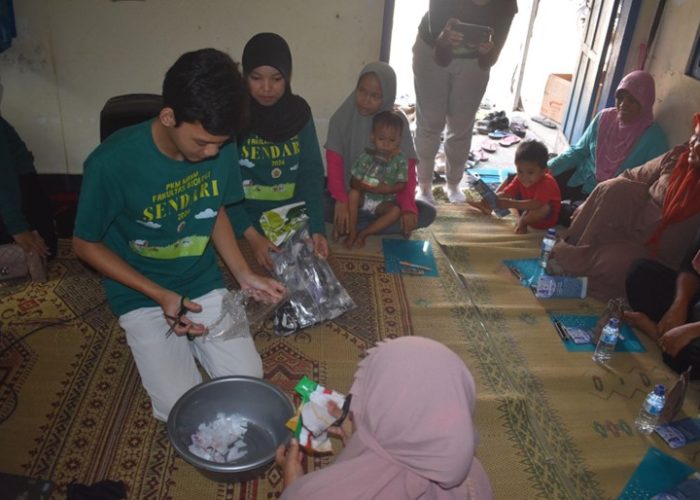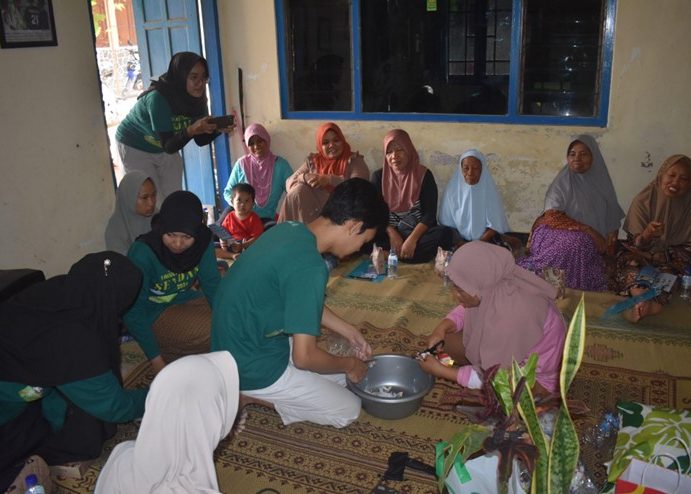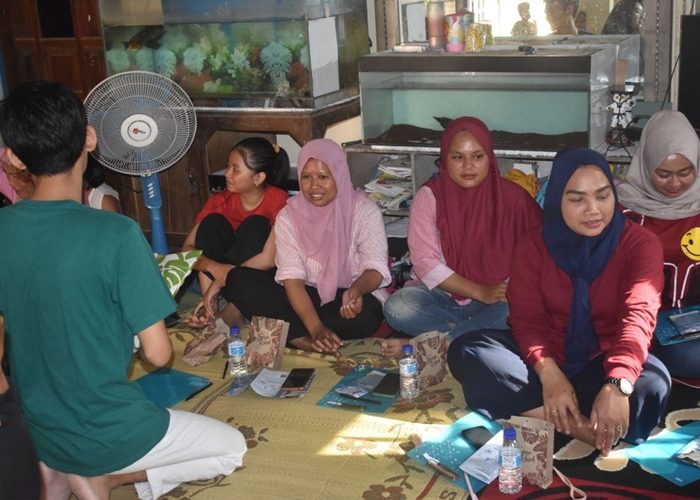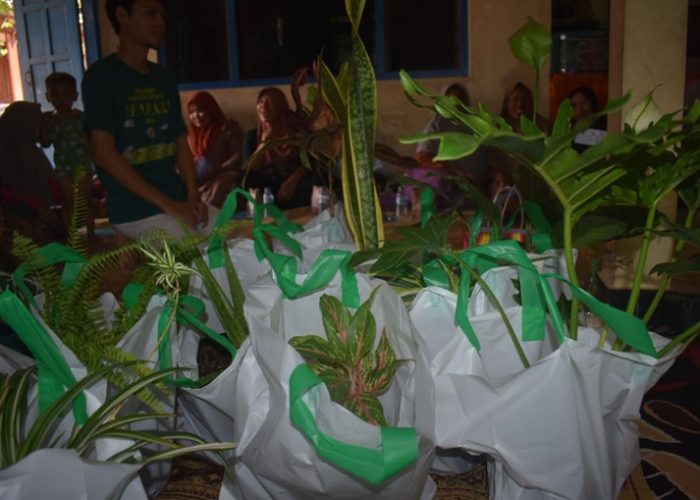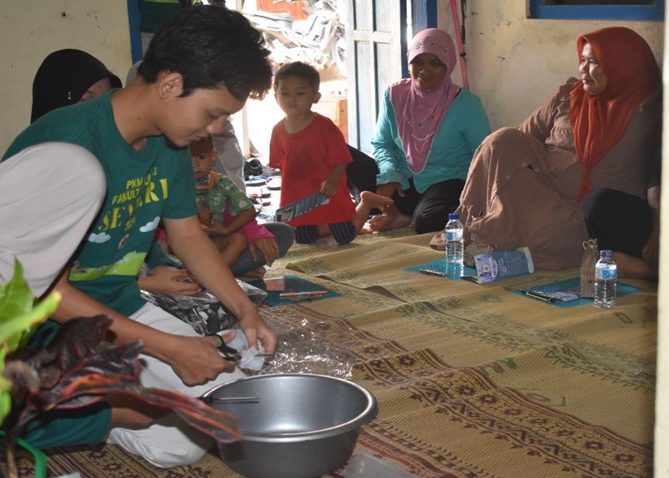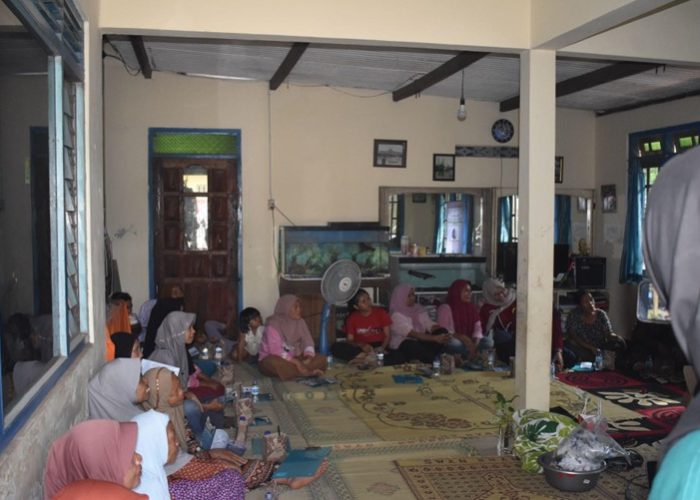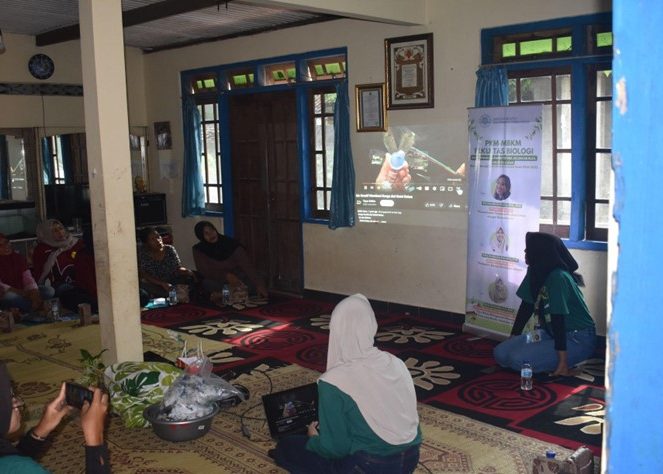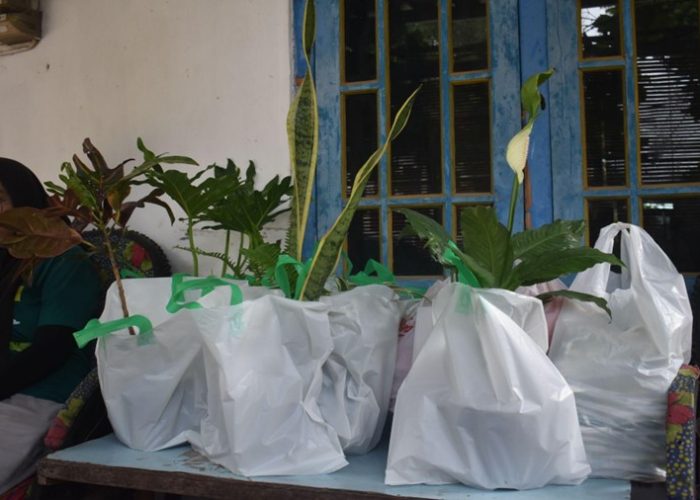Yogyakarta, October 26, 2024 – The Community Service Team of the Merdeka Belajar Kampus Merdeka (PkM-MBKM) Program from the 2024 Biology Study Program conducted a community service activity titled “Processing Inorganic Waste and Combating Air Pollution Using Plants” on Saturday, October 26, 2024. Guided by supervising lecturer Mrs. Novita Yustinadiar, S.Si., M.Si., this event aimed to raise community awareness of sustainable inorganic waste management and the utilization of plants to reduce air pollution caused by waste incineration and motor vehicle emissions.
The event began at 2:00 PM WIB with an opening address from Mrs. Novita Yustinadiar, S.Si., M.Si., followed by the main presentation delivered by Aisyah Balqis Febriana. In her session, Aisyah explained that inorganic waste such as plastic, bottles, paper, and cardboard can be sorted and sent to waste banks for recycling, thereby enhancing their utility. Additionally, the concept of waste-to-energy was introduced, specifically the use of waste combustion heat as an environmentally friendly source of electricity, similar to Japan’s use of incineration technology. However, this technology is not yet feasible in Indonesia due to technological limitations. Currently, many people resort to burning waste to eliminate it, which has negative consequences for the environment, health, and society. One example discussed in the session was the production of microplastics from waste burning, which can contaminate soil, water, and air, posing risks to human, animal, and plant health. Thus, raising awareness about the dangers of waste burning and exploring alternative solutions for inorganic waste management is essential. In addition to recycling through waste banks, other potential solutions for managing inorganic waste include creating crafts and upcycling waste into valuable and marketable items. The session also covered air pollution mitigation using plants, including types of plants that absorb air pollution and the mechanisms by which plants reduce pollutants.
Following the presentation, Wisnu Prabowo conducted a hands-on demonstration, showing participants how to make sofa cushions filled with clean, recycled plastic, followed by the distribution of cushion covers and plastic zip covers to all attendees. Then, Ardiah Pramesti Cahyani presented a tutorial video along with a display of creative items made by the student team, such as lanterns from plastic spoons, flowers from plastic bags, flowers from used plastic bottles, frames from bottle caps, flower pots from bottles, and glass bottle vases for water propagation. These creations served as daily-life inspirations for repurposing inorganic waste.
Participants engaged in a Q&A session and took a post-test to assess their understanding of the material. Attractive door prizes, including air-purifying houseplants and other gifts, were awarded to participants who actively engaged in the discussion. The event concluded with a recap video of the PkM-MBKM 2024 program, highlighting the series of environmental education activities.
The program closed with a farewell from Mrs. Novita, a group photo session with all participants and the team, and the distribution of souvenirs as tokens of appreciation. This community service program, which concluded at 4:00 PM WIB, is hoped to provide the community with new insights on environmental preservation through waste management and plant use as a solution for air pollution mitigation. We extend our gratitude to the Faculty of Biology for funding this event through the 2024 PKM-MBKM Grant, hoping it will continue to benefit the broader community.

